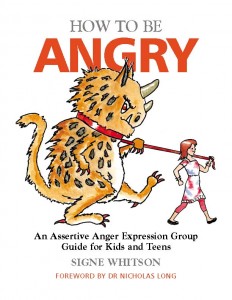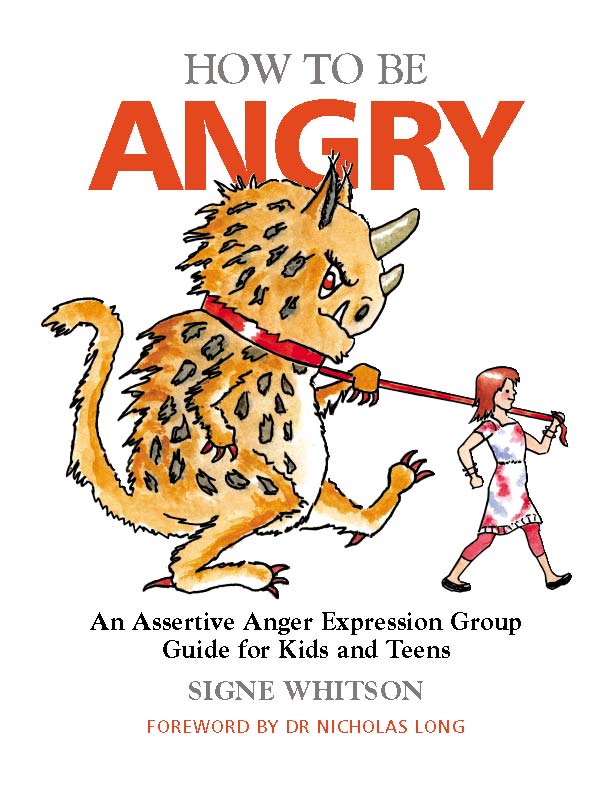anger
How to Respond to a Young Person’s Anger
0One of the most frequently asked questions I receive from teachers and parents is, How should I respond when a  young person is upset or emotionally overwhelmed?” Since self-regulation is the core of emotional well-being (not to mention a pre-requisite for academic progress), I am not just willing…but completely eager…to share practical strategies for helping kids manage intense feelings and develop self-regulation skills.
young person is upset or emotionally overwhelmed?” Since self-regulation is the core of emotional well-being (not to mention a pre-requisite for academic progress), I am not just willing…but completely eager…to share practical strategies for helping kids manage intense feelings and develop self-regulation skills.
Check out my recent post from Psychology Today to find seven practical strategies for responding well to angry kiddos…and please share it with professionals, parents, and others in your network who may also find it helpful.
How to Help Your Overly-Compliant Child
0![]() Got a kid who can’t—or won’t—assert herself around others? Highlights Magazine interviewed me, Dr. Michele Borba, and Dr. Kristin Buss for strategies on how to help passive young people find their voices. Check out our responses using the link below and at the “Smart Answer to Parents’ Toughest Questions” section on Highlights.com
Got a kid who can’t—or won’t—assert herself around others? Highlights Magazine interviewed me, Dr. Michele Borba, and Dr. Kristin Buss for strategies on how to help passive young people find their voices. Check out our responses using the link below and at the “Smart Answer to Parents’ Toughest Questions” section on Highlights.com
https://www.highlights.com/parents/articles/smart-answers-parents-toughest-questions-passive-child-2
 For more information on helping your child move beyond passivity, aggression, or passive aggression and on to more assertive communication, check out the activities, games and discussion ideas in How to Be Angry: An Assertive Anger Expression Group Guide for Kids & Teens.
For more information on helping your child move beyond passivity, aggression, or passive aggression and on to more assertive communication, check out the activities, games and discussion ideas in How to Be Angry: An Assertive Anger Expression Group Guide for Kids & Teens.
How to Be Angry Used in Homeschooling Program
0There’s nothing that an idealistic, trying-to-change-the-world-one-child-at-a-time, do-gooder like me values more than hearing that their work is truly making a difference for others. Yesterday, Vanessa Reinelt, a homeschooling mom of two and teacher of 4 other children, sent me this music-to-my-ears feedback:
We have been working through your “How to Be Angry” curriculum and already are seeing huge benefits. Our children (ages 10-13) are already identifying their anger and striving to express their anger assertively! I have looked at many programs and resources trying to find an appropriate one to teach the kids about emotional and social health. None can compare to the depth and quality that yours provides. I  absolutely love the format you use. Teaching the 4 types of Anger Expression and with the healthiest (Assertiveness) as the last module. I genuinely believe if we teach children about expressing…emotions in healthy ways, the human race will stand a chance in reaching the next millennium.
absolutely love the format you use. Teaching the 4 types of Anger Expression and with the healthiest (Assertiveness) as the last module. I genuinely believe if we teach children about expressing…emotions in healthy ways, the human race will stand a chance in reaching the next millennium.
Thanks again for your time Ms. Whitson. You are truly a credit to your profession. Thank you for your amazing book. Your work is making the world a better place.
Thank YOU, Vanessa, for prioritizing the social and emotional health of kids!
If you’ve used How to Be Angry, Friendship & Other Weapons, The Angry Smile, or 8 Keys to End Bullying with students, please let me know how the experience has been for you!
From Grudges to Gratitude: Watch this 3-Minute Video
0Today, I worked with kids who were holding on to angry feelings about ways their peers had wronged them. This video is a beautiful way to teach young people about letting go of grudges and instead, holding on to gratitude.
http://gawker.com/this-three-minute-commercial-puts-full-length-hollywood-1309506149

The LSCI Institute offers Training for Parents, Foster Parents & Caregivers
0Trainings from the Parents Division of the LSCI Institute help parents and caregivers learn specific skills for building positive relationships with kids, prevent and de-escalate conflicts, and utilize consistent, verbal strategies for crisis intervention. The LSCI Skills for Parents trainings:
- Provide parents with specific skills for building positive relationships with kids
- Encourage the use of preventative and non-physical crisis de-escalation strategies
- Provide a framework for verbal crisis intervention that is consistent from situation to situation
Part 1: Conflict Prevention & De-Escalation
The Conflict Prevention & De-Escalation course presents foundational LSCI concepts such as the Conflict Cycle™, effective listening, crisis de-escalation, and “Timeline” skills through engaging activities and discussions that are relevant and accessible to parents and caregivers. Part 1 can be taught as a 1-day course or as a series of hour-long workshops.
Part 2: Managing Challenging Behaviors
The Managing Challenging Behaviors program identifies the six most common, chronic self-defeating patterns of behavior in kids and provides parents with a consistent 4-step process that helps families effectively address and modify each one. Part 2 of the curriculum is designed as an 8-session program, with one session dedicated to each of the six self-defeating patterns, along with an Introduction and Conclusion session.
FIND OUT what participants are saying about LSCI Skills for Parents trainings: http://www.lsci.org/parents-division-lsci-institute
FOR MORE INFORMATION & TO SCHEDULE an LSCI Skills for Parents course, please click on the LSCI Training page or email me at signe@signewhitson.com.
I Wish I Could Have a Do-Over! 5 Strategies for Parenting with a More Level Head
0Not long ago, my daughter, her best friend and I had a full day’s worth of activity and adventure, enjoying carnival games at a local festival, eating bags of salty popcorn, running through icy cold fountains when the day’s heat became too intense and following it all up with a late afternoon movie. It was Girl Time at its best!
Which is why I was totally blown away when, after dropping off her friend, my daughter’s answer to my innocent inquiry of, “So, what should we do for dinner?” was met with a raging, “Nothing! Can we just go home already? I think we’ve bonded enough for one day.”
“Was that a car that just rear-ended me?” I thought momentarily. “Can words cause whiplash?” I wondered. My white knuckles clutched the steering wheel with primitive force and I’m pretty sure the woman in the lane next to me witnessed steam coming out of my ears.
“Seriously?” I started out calmly. Unfortunately, I only began that way. Quick as a flash, angry words of hurt and indignation rang forth from my mouth. I promised to never take my daughter anywhere… ever… again. I threatened to cancel our “bonding plans” for next weekend’s end-of-school-year trip. I lied and told her that I had had a miserable day, too. In short, I mirrored the emotions my daughter had just unleashed on me and fueled the out-of-the-blue conflict with ten additional gallons of gasoline. When my rant was over, I looked at her in the rearview mirror and I knew I had blown it.
For the rest of this not-so-Mom-of-the-Year-moment–including my thoughts on how I would approach this situation if I could have a Do-Over–please check out my full article in the HuffingtonPost:
http://www.huffingtonpost.com/signe-whitson/anger-management_b_1564608.html?ref=parents
Please also check out the tab on LSCI Skills for Parents training, for more information on de-escalating conflicts with kids and improving parent-child relationships.
How to Be Angry book reviewed by Moms & Therapists
0This week, two new reviews of How to Be Angry were posted on amazon.com by two new readers–both Moms–one a therapist, one a manager. I am completely honored to get this feedback from both of them:
Leslie TenBroeck writes:
As a licensed therapist (a good one) and a parent (a so-so one), I found this book helpful in all realms. I’m always on the lookout for good group therapy curriculum, at the same time, trying to help my very emotional and rigid son find new ways to manage his anger. The book is written without a lot of jargon, which I find to be a plus. This would be great for schools as well.
PA Mom writes:
I am not a therapist or a teacher. I am a mom and a manager of a large team. WOW – this book is an AMAZING tool. As soon as I started reading it, I became instantly aware of how I express anger, and how my son expresses it. But what I learned also applied to my management role. I’ve already started applying some of the principles and techniques at home and at work, and I’m amazed at the results. A little awareness goes a LONG way. And I must agree with one of the other reviewers – the confirmation that anger is healthy is really refreshing. What this book does, is help us — ALL of us — to learn how to express anger in a healthy way. Highly recommend this book!
Check out these and other reviews at:
http://www.amazon.com/How-Be-Angry-Assertive-Expression/dp/1849058679/ref=cm_cr_pr_product_top

